In agriculture, choosing quality banana twine is a crucial factor in supporting healthy plant growth and preventing breakage from strong winds and storms. With high durability, excellent strength, and affordable pricing, banana twine is an optimal solution for farmers. Are you looking for twine that is strong, flexible, and long-lasting? Explore SIAM Brothers Vietnam’s range of banana twine products tailored to meet your needs and ensure a bountiful harvest.
Banana twine is a specialized type of twine, often made from materials like Polypropylene (PP) or Polyethylene (PE), known for its durability, high tensile strength, and flexibility, making it ideal for stabilizing banana plants during growth. In agriculture, particularly banana cultivation, plants frequently encounter harsh weather conditions, such as strong winds or storms, which can easily lead to breakage. This is why banana twine has become an essential tool, helping banana plants remain sturdy and grow healthily.
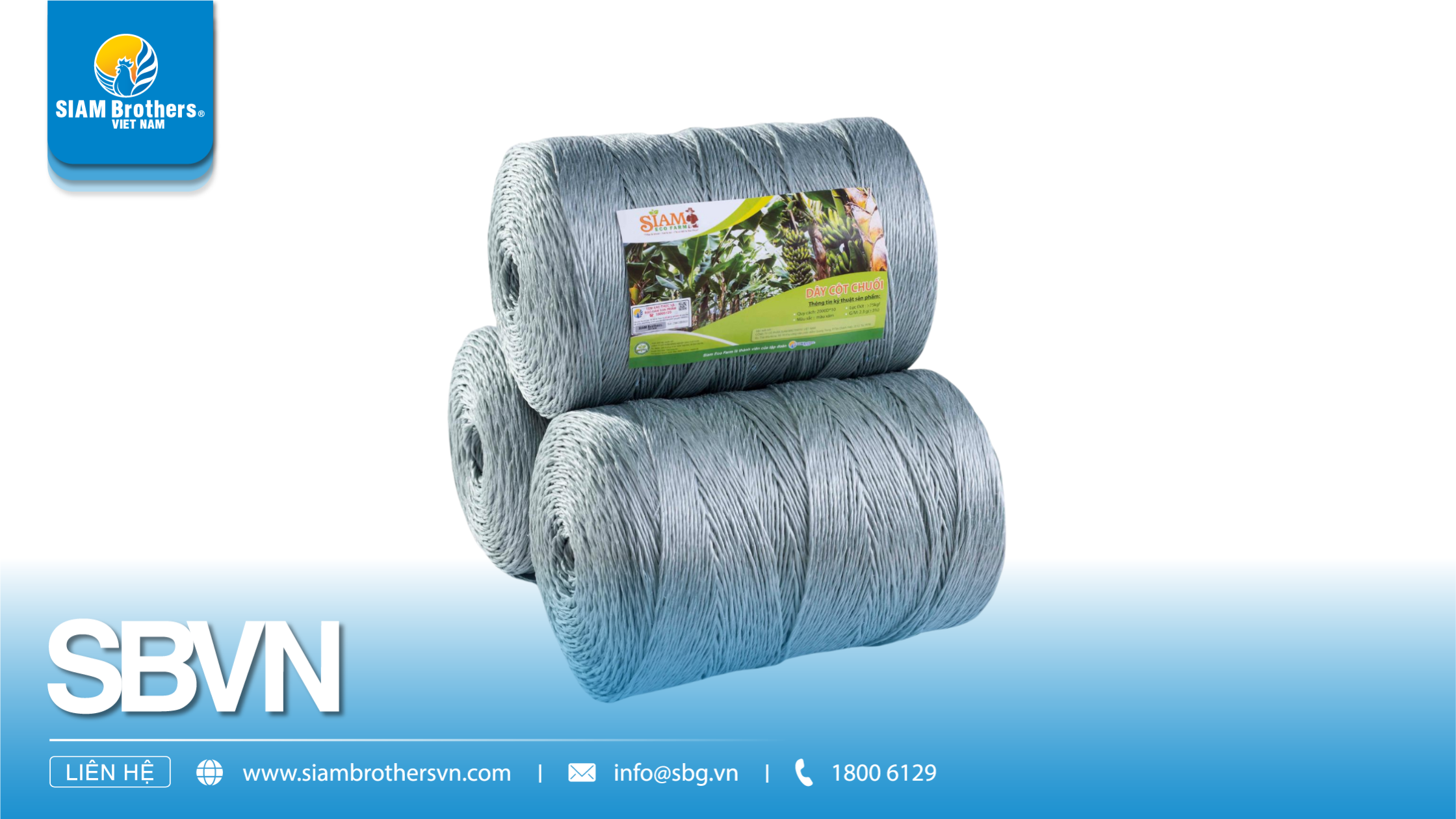 Premium banana twine, manufactured by Siam Brothers Vietnam Joint Stock Company, is made from 100% virgin plastic – Source: SIAM Brothers Vietnam
Premium banana twine, manufactured by Siam Brothers Vietnam Joint Stock Company, is made from 100% virgin plastic – Source: SIAM Brothers Vietnam
See More: 4 Criteria for Choosing the Right Small Rope for Daily Tasks
PP twine is one of the most popular choices for securing banana plants. Made from PP plastic fibers, this twine is highly abrasion-resistant, strong, and waterproof. Thanks to its lightweight and flexible nature, PP banana twine is easy to handle, providing a secure hold on banana plants without damaging their stems.
PE twine is another widely used option for banana twine due to its high strength and water resistance. Farmers often prefer PE twine for its durability, resistance to stretching when wet, and ability to withstand harsh weather conditions. In addition to supporting banana plants, PE twine has versatile applications across other agricultural fields.
One advantage of PE twine is its reusability; it maintains durability and flexibility even after multiple uses. This helps farmers reduce costs, especially on large-scale farms.
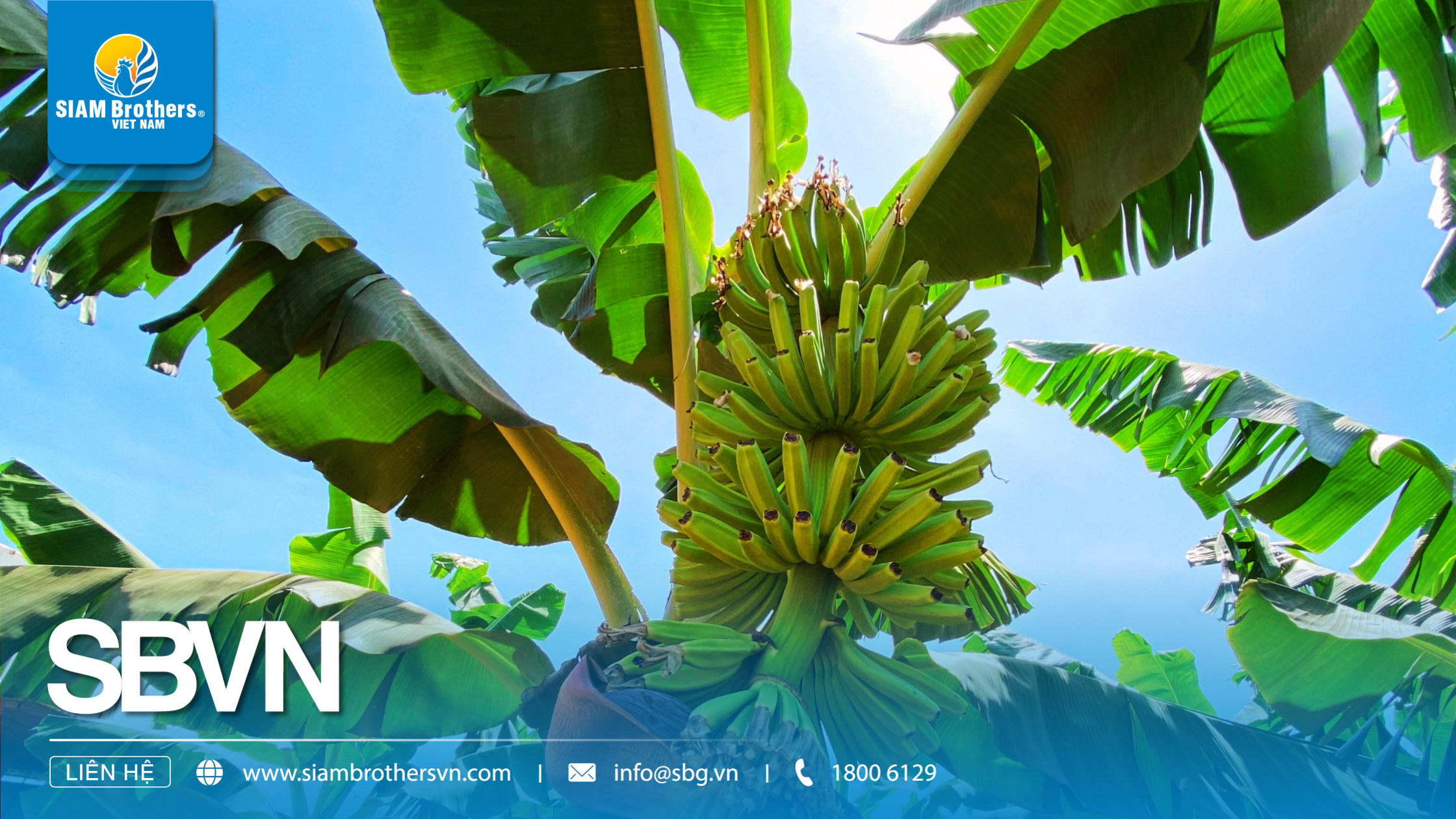 Eco Farm banana twine is produced with advanced technology – Source: Internet
Eco Farm banana twine is produced with advanced technology – Source: Internet
Read more: Hanging Twine - A Sustainable Soution for Healthy Plants Growth
Nylon twine is another choice for those needing exceptional strength and durability. This type of twine boasts excellent tensile strength, resists rot and degradation under sunlight, and can be used in high-humidity environments. However, nylon twine tends to be more costly compared to PP and PE twine, making it a suitable choice for banana growers prioritizing maximum durability without budget concerns. Nylon twine is commonly used in areas where banana plants face harsh weather conditions or require strong, secure support.
If you manage a large-scale farm that requires a significant amount of twine, factors like cost-effectiveness and durability are crucial. Polypropylene (PP) twine is an ideal choice for large-scale banana growers, offering both durability and affordability, helping reduce costs when buying in bulk. Additionally, PP twine’s UV resistance and strength ensure secure support for banana plants throughout the season, even under challenging weather conditions.
If your banana plantation is located in an area with harsh weather, frequent storms, or high humidity, consider choosing banana twine that withstands environmental factors like water, moisture, and UV exposure. Polyethylene (PE) twine is an ideal choice for areas with severe weather due to its water resistance and non-stretch quality when wet. This durability helps PE twine maintain its strength and reliability over extended use.
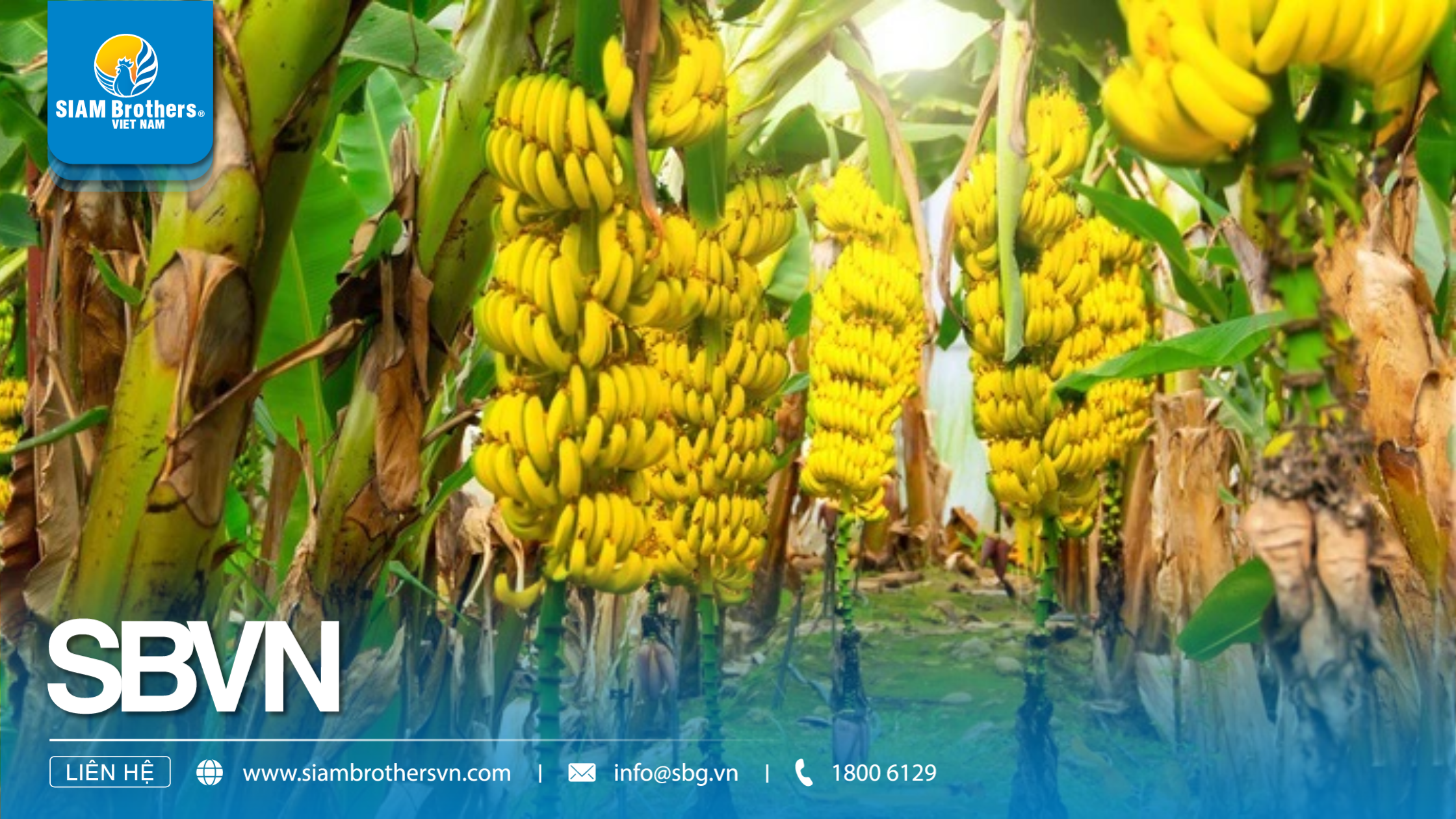 Key features of banana twine: high flexibility, excellent tensile strength, and UV resistance – Source: Internet
Key features of banana twine: high flexibility, excellent tensile strength, and UV resistance – Source: Internet
Reference: Polyester Rope - 7 Practical Applications to Help Optimize Every Job
In addition to using banana twine to stabilize banana plants, it can also be used for securing various agricultural tools. If you require twine with elasticity and strong tensile strength for multipurpose use, nylon twine is an ideal option. Nylon twine offers high load-bearing capacity, abrasion resistance, and can be used effectively in different environments. While nylon twine may have a higher price point than other types, its durability and versatility provide long-term savings by reducing replacement costs.
For small or medium-sized banana growers, affordability and ease of use are key considerations. PP or PE twine are both cost-effective and durable, making them ideal for smaller households. Using these types of twine enables easy handling and maintenance of plants without requiring extensive labor.
Selecting the proper position to tie the banana twine is crucial. It's best to tie the twine around the mid-section of the banana plant, usually 1-1.5 meters above ground level. This helps the plant maintain balance and stability during growth while protecting the base from damage.
Ensure you use banana twine with the appropriate durability and flexibility for the size and maturity of the banana plant. For younger, more pliable plants, a softer twine like PP twine is ideal for easy handling without harming the plant. For mature plants, consider stronger twine such as PE or nylon twine to provide robust support, especially against strong winds or storms.
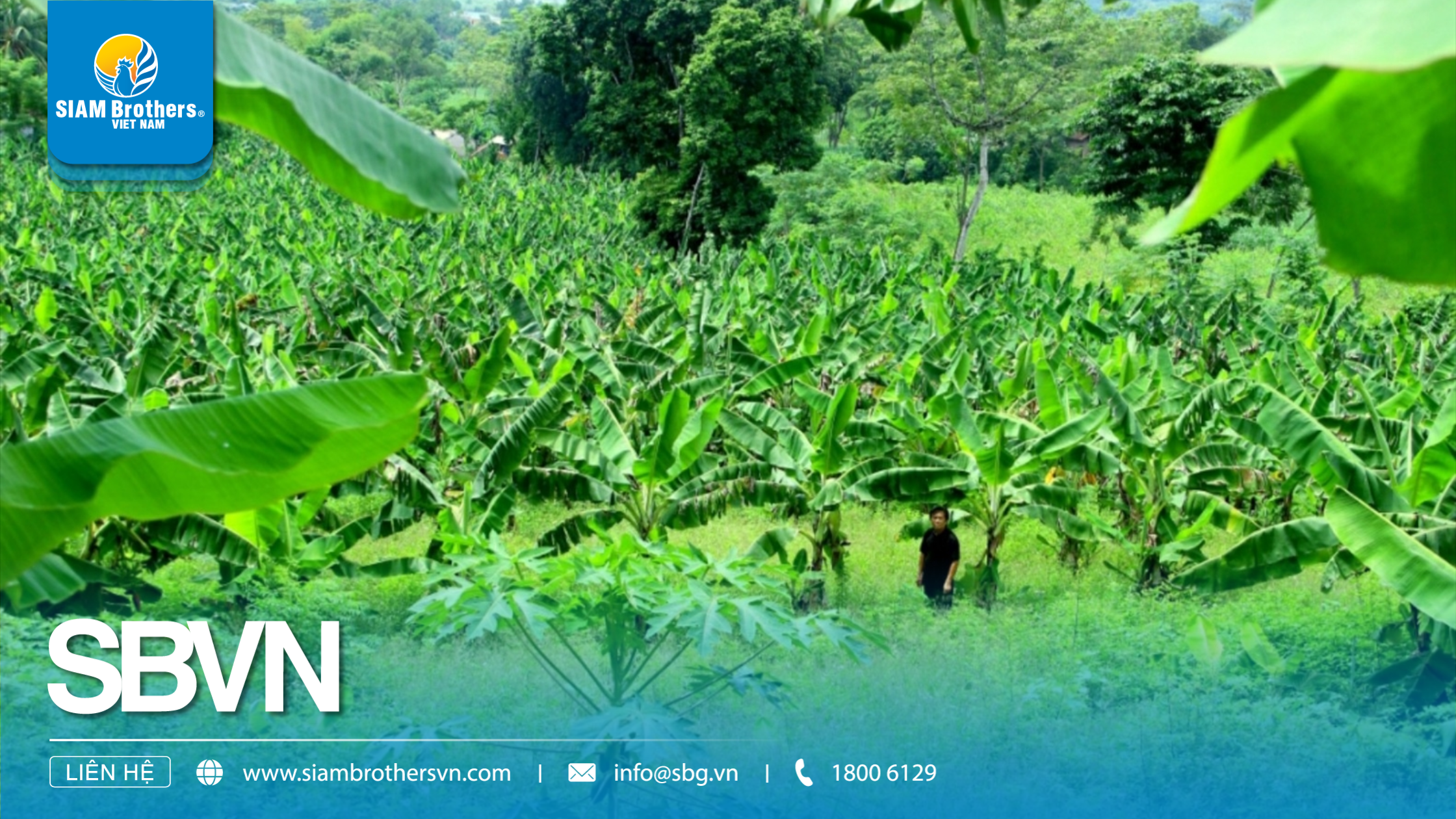 It is recommended to use banana twine with flexibility and durability suited to the size and maturity of the banana plant – Source: Internet
It is recommended to use banana twine with flexibility and durability suited to the size and maturity of the banana plant – Source: Internet
See More: 4 Criteria for Choosing the Right Small Rope for Daily Tasks
When tying banana twine, ensure it is not too tight to avoid damaging the plant stem, but not too loose to prevent instability. You can use an "8-knot" technique, which secures the plant firmly without harming the stem. For areas with strong winds or heavy rain, consider adding extra ties at the base and top of the plant to ensure stability.
No matter how high-quality banana twine is, regular inspections are essential. Over time, twine may stretch or degrade due to weather exposure. Regularly check and replace the twine as needed to keep the banana plant securely supported.
Answer: Yes, banana twine can be used beyond securing banana plants. It is widely applicable in agriculture for securing various plants, binding goods, and even in construction. The most versatile type is nylon twine, thanks to its high tensile strength and elasticity, making it suitable for multiple purposes.
Answer: Even high-quality banana twine requires regular inspection to ensure durability and strength. If you notice the twine is worn, stretched, or has lost elasticity, it's time for a replacement to keep your banana plants securely supported. Ideally, inspect the twine at the end of each growing season or after severe weather events.
Answer: Properly used, banana twine will not harm the plant. Make sure not to tie the twine too tightly, which could damage young plant stems. Choose flexible twine, like PP twine, to minimize potential harm as the banana plant grows.
Answer: To purchase high-quality banana twine at the best price, you can contact us directly through our website or the SIAM Brothers Vietnam hotline. We offer a wide range of banana twine options to meet the needs of both small households and large-scale farms. With professional advisory support, we are ready to help you choose the product best suited to your farming scale and conditions.
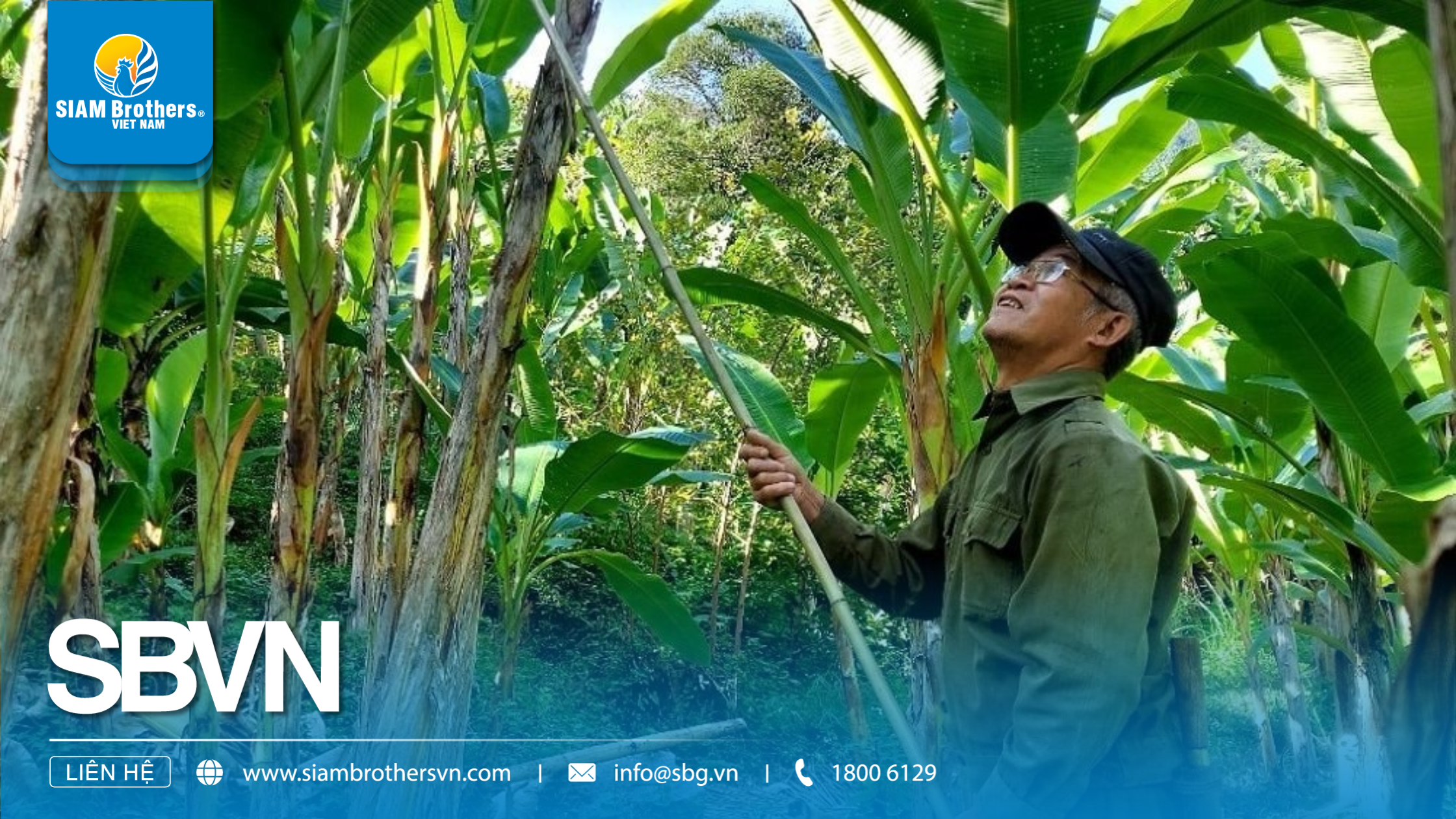
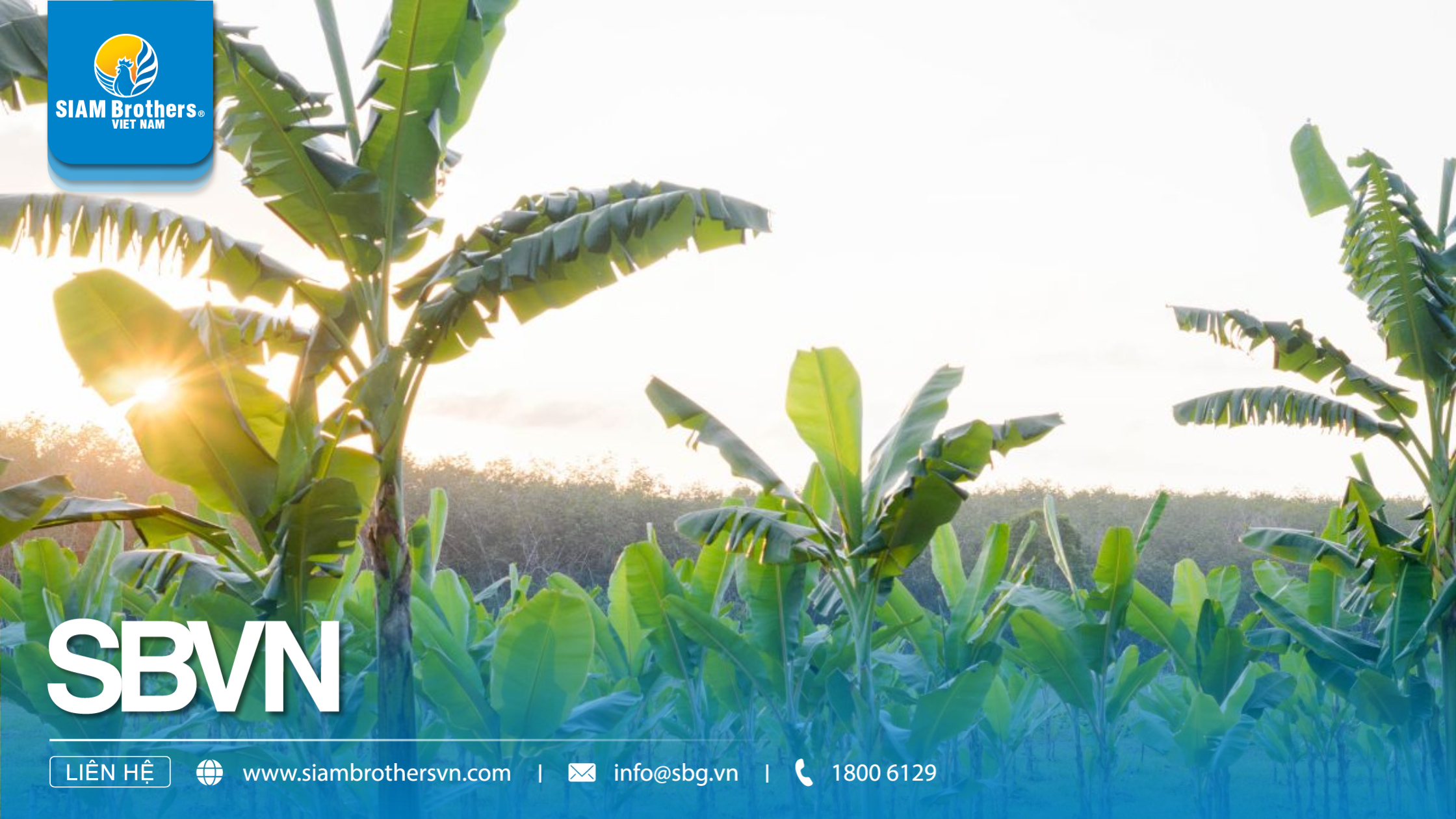 Find reliable distributors to purchase high-quality banana twine – Source: Internet
Find reliable distributors to purchase high-quality banana twine – Source: Internet
Learn more: Everything about synthetic rope: a versatile solution for all industries
When purchasing banana twine, prioritizing quality, durability, and tensile strength is essential for protecting banana plants and ensuring a productive harvest. From popular types like PP and PE to nylon twine, each offers unique benefits tailored to the specific needs of banana growers. With extensive experience and a reputation for quality, SIAM Brothers Vietnam is committed to providing you with the highest-quality products.
Contact us today to find the banana twine that meets your requirements and supports the healthy, sustainable growth of your banana plants in all weather conditions.
Source: SIAM Brothers Vietnam
Contact Us:
Address: 5th Floor, VRG Building, 177 Hai Ba Trung Street, District 3, Ho Chi Minh City, Vietnam
Phone: (+84) 28 39 912 889
Hotline: 1800 6129 (toll-free)
Facebook: fb.com/siambrothersvn
Email: info@sbg.vn
YouTube: youtube.com/@siambrothersvietnam1728
X (Twitter): x.com/sbvnjsc
Zalo OA: zalo.me/1402339229697925373
SBVN ID App:
Google Play: https://bit.ly/SBVNID-Android
App Store: https://bit.ly/SBVNID-iOS
